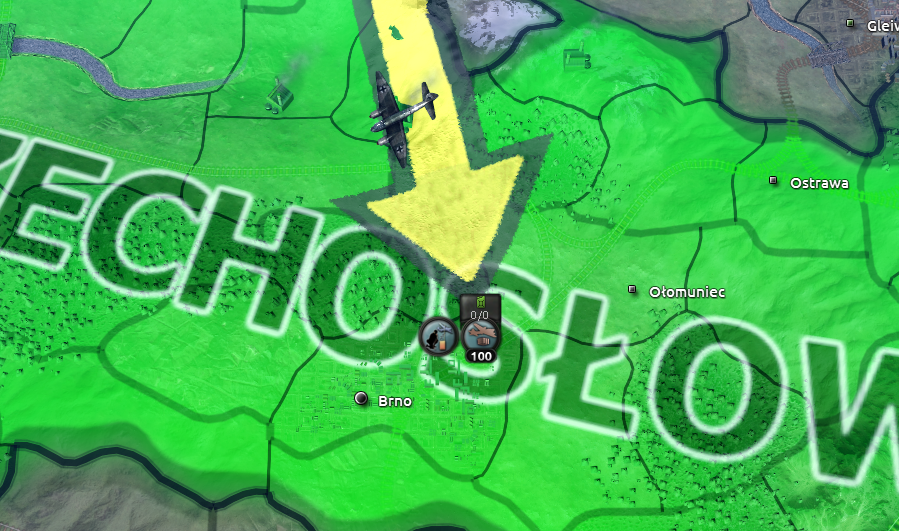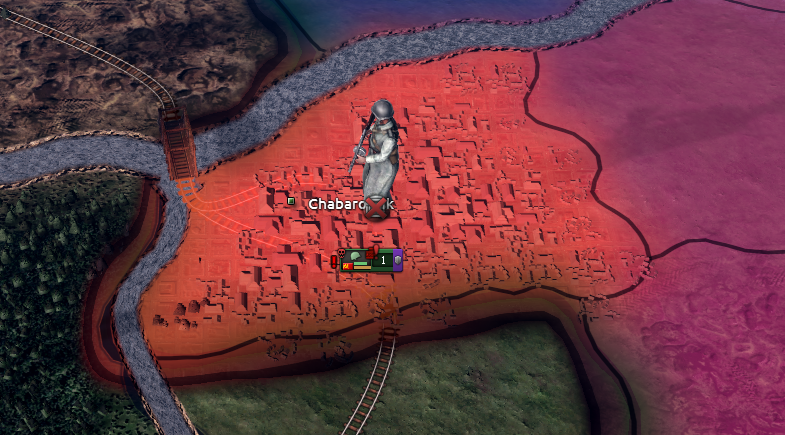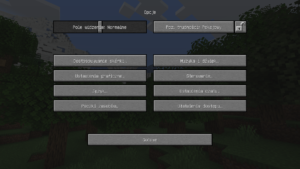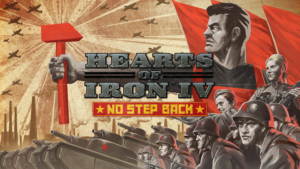Supplies are the equipment and human resources that are required for the operation of a division. If the amount of supplies supplied to a province is less than the required amount, the units in the province will receive penalties. The 1.11 Barbarossa update introduced a new logistics system that makes supply management much more complicated.
Sources of supply are divided into 3 groups:
- Supply from logistics centers,
- aerial supply,
- regional sourcing.
Supply from logistics centers
Logistics centers are supply hubs or ports that distribute supplies to nearby militaries. Logistics center parameters to keep in mind are:
- logistics center range,
- the amount of supplies delivered to the center,
- utilization of supply capacity.
Range
The range of logistics centers depends on several factors:
- the distance of the province from the logistics center,
- rail connection level,
- level of infrastructure,
- terrain,
- weather.

Delivery range can be increased by:
- increasing the level of motorization,
- increasing the level of rail connectivity,
- increasing the level of infrastructure.
The amount of supplies delivered drops significantly with each province that separates the target province from the logistics center.
Supplies provided
For ports, the total quantity of supplies depends on the level of the ports through which the supplies are transported. The level of the port from which the supplies are shipped is important, as is the level of the destination port.
In the case of supply hubs, the important thing is the rail connection between supply points and the main supply point in the capital, called the capital supply hub. Points connected by a river are treated as if they were connected by a first-level railroad.
Damaged supply hubs, railroads, ports or destroyed convoys limit supply capacity.
Utilization of supply capacity
Supplies delivered to units depend largely on the number of units within range of the logistics center. Supplies from a point are divided among all units in range, so sometimes, to improve the logistics situation in an area, it is enough to reduce the number of divisions located in the region.
Aerial supply
Aerial supplies are delivered by transport aircraft through the “Aerial Supply” mission. Units receive supplies regardless of whether they are directly in range of the transport aircraft, it is only required that the region is in range of the aircraft performing the mission, but this involves a lower value of supplies.

Mission effectiveness
The amount of supplies delivered depends on the effectiveness of the “Aerial Supply” mission, which depends on:
- the size of the region in relation to the size of the squadron performing the mission,
- weather,
- supplies of the squadron performing the mission.
Regional supply
Regional supply includes supplies generated directly in the region on the basis of:
- victory points,
- infrastructure,
- populations,
- constant value of supply in the region.
Contested regions
Supplies in regions that are divided between warring states are divided proportionally based on the number of provinces a state occupies.
Fuel
Fuel can only be delivered through logistics points connected to the capital. In the absence of access to the capital, the division will not receive fuel supplies.
Effects of lack of supply
The supplies that are needed for a division depend on:
- the number and type of battalions in the division,
- army commander and field marshal,
- weather.
Lack of supply affects the combat power of the division, which is determined by the orange bar next to the green bar of the organization. In addition, less frequent supplies slow down the division’s recovery.

Penalties for lack of supplies
Divisions without supplies suffer additional penalties that increase with supply shortages. Penalties include:
- division speed,
- maximum organization,
- reorganization,
- defense,
- attack,
- breakthrough,
- exhaustion.
Air wing supply
In the case of aviation, the effectiveness of the mission on depends on the supply of the air base. If supplies are too low, wings will also stop receiving fuel.
Naval supply
Lack of port supply will reduce the effectiveness of detecting enemy ships and slow down repairs. As with aviation, in the absence of supplies, ships may stop receiving fuel. Lack of fuel affects the effectiveness of ships in combat.
Sources:
https://hoi4.paradoxwikis.c



